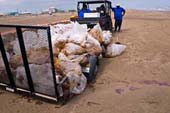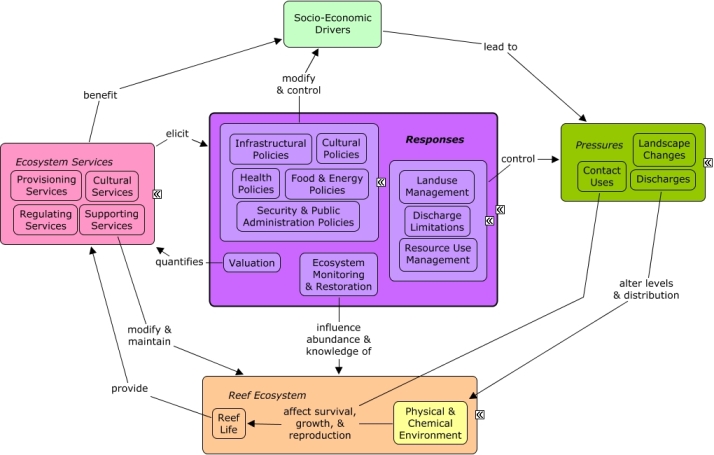ReefLink Database

Responses
Responses are actions taken by groups or individuals in society and government to prevent, compensate, ameliorate or adapt to changes in Ecosystem Services or their perceived value. Responses include policies, strategies, and interventions to address specific issues, needs, opportunities, or problems. In the context of ecosystem management, responses may be of legal, technical, institutional, economic, and behavioral nature and may operate at local or micro, regional, national, or international level and at various time scales (MEA 2009).
CMap

CMap Description
Changes in ecosystem services or their perceived value elicit responses from decision-makers. Responses may seek to control socio-economic drivers through policies or economic decisions that directly influence sectors, or to control pressures through regulations or technology that limit human activities or attempt to modify human behavior. Responses may seek to better understand or preserve the reef ecosystem through monitoring or restoration activities. Decision-makers may also seek to quantify the importance of ecosystem services through various valuation methods.Citations
More than 50 citations. Click here to load.
| Citation | Year | Study Location | Study Type | Database Topics |
|---|
Management Options
More than 50 management options. Click here to load.
| Management Option | Description | Sources | Database Topics |
|---|
Laws
More than 50 laws. Click here to load.
| Legal Citation | Purpose of Law | Management Organization | Database Topics |
|---|
